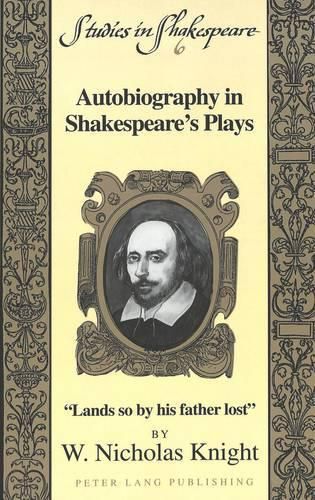Readings Newsletter
Become a Readings Member to make your shopping experience even easier.
Sign in or sign up for free!
You’re not far away from qualifying for FREE standard shipping within Australia
You’ve qualified for FREE standard shipping within Australia
The cart is loading…






Shakespeare’s authorship of his plays can no longer be in doubt with this book’s clear identification of autobiographical passages throughout his work from his legal documents in Stratford and London courts. Shakespeare refers to the loss of his inheritance, by his father mortgaging it to his uncle, from early works such as Taming of the Shrew to the late Lear. His mother is referred to in As You Like It and Coriolanus; his twins in Comedy of Errors and Twelfth Night; and the loss of his son from Merchant of Venice to Macbeth. His daughters, as recipients of his accumulated wealth, are subjects of his concern from Lear to The Tempest. More important, the knowledge of the law in his personal pursuits is revealed as a source for the legal content in his works, which found fit audiences among jurists at the Inns of Court law schools and in King James’ Court. Shakespeare pleased the king on these matters enough to have him command his plays to be repeated on an occasion. For himself, Shakespeare learned from his own writing how to deal with the language of law theoretically and conceptually with such concepts as equity and mercy in Chancery. He used his own family life, personal documents, and legal problems to give impetus to his version of borrowed characters, plots, plays, and history. These personal events, from the placement of the references, give his plays, which sometimes end with a fictionalized, wish-fulfillment, or literary compensation, an autobiographical initial compulsion.
$9.00 standard shipping within Australia
FREE standard shipping within Australia for orders over $100.00
Express & International shipping calculated at checkout
Shakespeare’s authorship of his plays can no longer be in doubt with this book’s clear identification of autobiographical passages throughout his work from his legal documents in Stratford and London courts. Shakespeare refers to the loss of his inheritance, by his father mortgaging it to his uncle, from early works such as Taming of the Shrew to the late Lear. His mother is referred to in As You Like It and Coriolanus; his twins in Comedy of Errors and Twelfth Night; and the loss of his son from Merchant of Venice to Macbeth. His daughters, as recipients of his accumulated wealth, are subjects of his concern from Lear to The Tempest. More important, the knowledge of the law in his personal pursuits is revealed as a source for the legal content in his works, which found fit audiences among jurists at the Inns of Court law schools and in King James’ Court. Shakespeare pleased the king on these matters enough to have him command his plays to be repeated on an occasion. For himself, Shakespeare learned from his own writing how to deal with the language of law theoretically and conceptually with such concepts as equity and mercy in Chancery. He used his own family life, personal documents, and legal problems to give impetus to his version of borrowed characters, plots, plays, and history. These personal events, from the placement of the references, give his plays, which sometimes end with a fictionalized, wish-fulfillment, or literary compensation, an autobiographical initial compulsion.